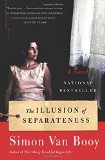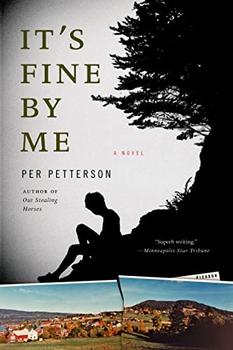Summary | Excerpt | Reviews | Beyond the book | Read-Alikes | Genres & Themes | Author Bio

I don't believe in the notion of good people and bad people...that good people exist here and bad people exist here...I think we're all the above, and I don't think any reprehensible behavior is beneath me. I don't think I'm above anything - I'm a human being.*
In Dirty Love, Andre Dubus III presents people in relationships, without judgment but with great empathy and compassion. Each of the four interconnected stories lets us enter a life that resonates as our own: a person struggling with his own dreams and darkness, his own hopes and despair, his own loves and the capacity to sabotage that love. Just as in the scenes and acts of our own lives, we should not expect neat and complete resolutions, so Dubus's world is a mix of great need and desire, great satisfaction, and great disappointment.
As death always stalks the living, so that shadow is an ever-constant part of our most dazzling encounters with each other, of our most committed vows, and of our surest knowledge of each other. One of the bittersweet realities of our lives is that no matter how long or how intimately we've lived with another and have been part of each other's lives, there remains the most secret of chambers within each of us; a place no one else can enter but ourselves. On that level, we are born alone, we live alone, and finally we die alone. No one else can accompany us on the most critical steps into the depths.
Such a view can seem despairing and hopeless, but Andre Dubus III is far from either. His world is filled with hope - hope almost beyond hope, which is really the only hope there is. Dubus said: "I'm actually troubled by monotheism. I have a hard time with it, but I believe in the divine. And I have a hard time believing that when we're dead, that's it - most days, I think there is something more mysterious that goes on."* Such a sense of mystery and depth pervades Dirty Love as it has Dubus's other works, especially House of Sand and Fog. Dubus creates real human beings like us, who often do really stupid things that undermine their greatest hopes and deepest loves, but who keep moving forward with that hope beyond hope, willing to risk again, to reach out again, to love again, to accept life on its own terms, trusting, on the most primal level, that their lives have meaning and truth deeply embedded within them.
In the opening story, "Listen Carefully, As Our Options Have Changed," we meet Mark Welch, a man accustomed to order and structure both at work and at home. Finding that order crumbling around him as he investigates and stalks his wife of 25 years and her new lover, he knows he has lost control in this relationship and that there is nothing he can do to change it.
Mark had felt small himself, a grasping failure of a man...Was it time to let her go? But to allow the question into his head and heart was to allow a black tumor to take residence there where it would grow. But the only thing growing was this distance between himself and the world he supposedly lived in. He became a man things happened to, and he found himself groping for the tools of his work ... the monitoring and ordering of the results of [his] plans.
Is there hope? Is there anything left upon which to build a life together? As T.S. Eliot wrote in "East Coker" one of the Four Quartets: "For us is only the trying."
Marla, the title character of the next story, an overweight young woman with little hope for any romantic relationship, finally discovers someone who she feels fulfills her hopes. With time, however, comes knowledge, and with knowledge comes, not intimacy, but loneliness as she realizes that this person is not who she thought she'd met. Nevertheless, happiness is not something that comes to us from another, but is our own gift to ourselves. Can she take her life in her own hands and create beauty?
The other two stories follow suit, exploring the lives of people struggling to feel love, keep love, heal from and heal with love. Andre Dubus has opened us to much of the human heart in these four stories. He enters that which tortures us: overwhelming unfulfilled desire, cruel jealousy and suspicion, seemingly irresistible mindless passion, deep regret for thoughtless action. He also bring us into the joys that life holds out: love and commitment, healing by each other's presence, deep faith in another human person, and, ultimately, hope that, though we cannot erase the past, we can make that past a foundation for the wholeness we can create in our crippled lives. In Man's Search for Meaning, Viktor Frankl told us that, ultimately, we should not ask what the meaning of our lives is, but rather we must recognize that it is we who are asked - we are each questioned by life and are responsible to answer with the lives we create. The characters in Dirty Love are in the midst of creating those answers, and their lives.
*These quotes are from Andre Dubus III's Big Think interview:
![]() This review was originally published in The BookBrowse Review in October 2013, and has been updated for the
June 2014 edition.
Click here to go to this issue.
This review was originally published in The BookBrowse Review in October 2013, and has been updated for the
June 2014 edition.
Click here to go to this issue.

If you liked Dirty Love, try these:

by Simon Van Booy
Published 2014
This gripping, emotional story intertwines the stories of several compelling characters - one by one, through seemingly random acts of selflessness, they discover the vital parts they have played in each other's lives, a realization that shatters the illusion of their separateness.

by Per Petterson
Published 2013
Sometimes tender, sometimes brutal, It's Fine By Me is a brilliant novel from the acclaimed author of Out Stealing Horses and I Curse the River of Time.
Your guide toexceptional books
BookBrowse seeks out and recommends the best in contemporary fiction and nonfiction—books that not only engage and entertain but also deepen our understanding of ourselves and the world around us.